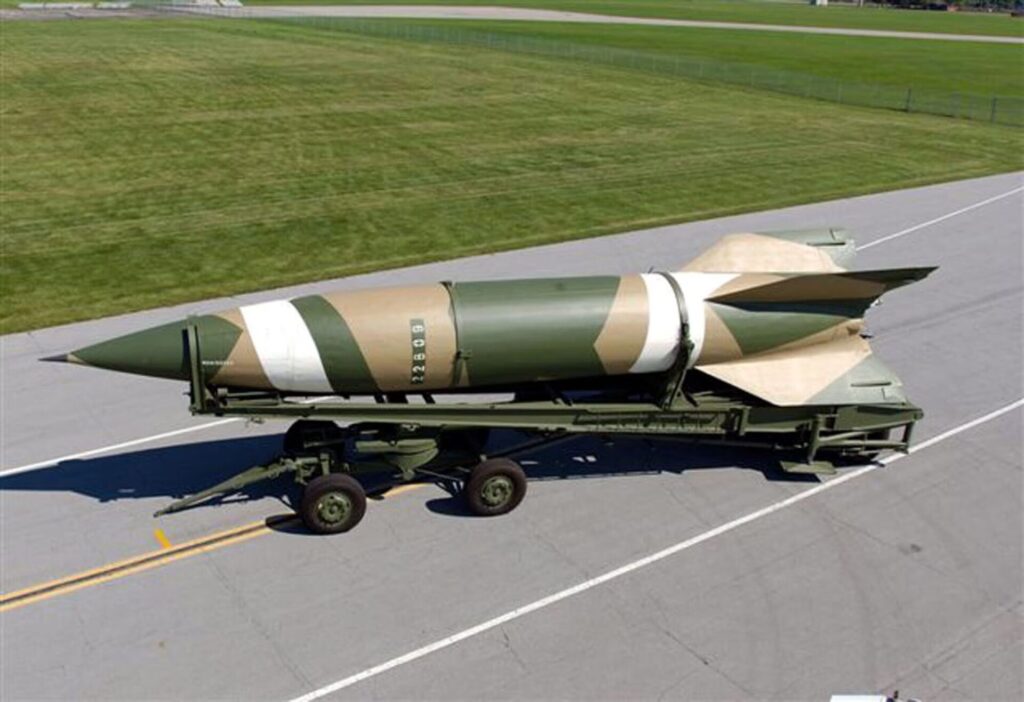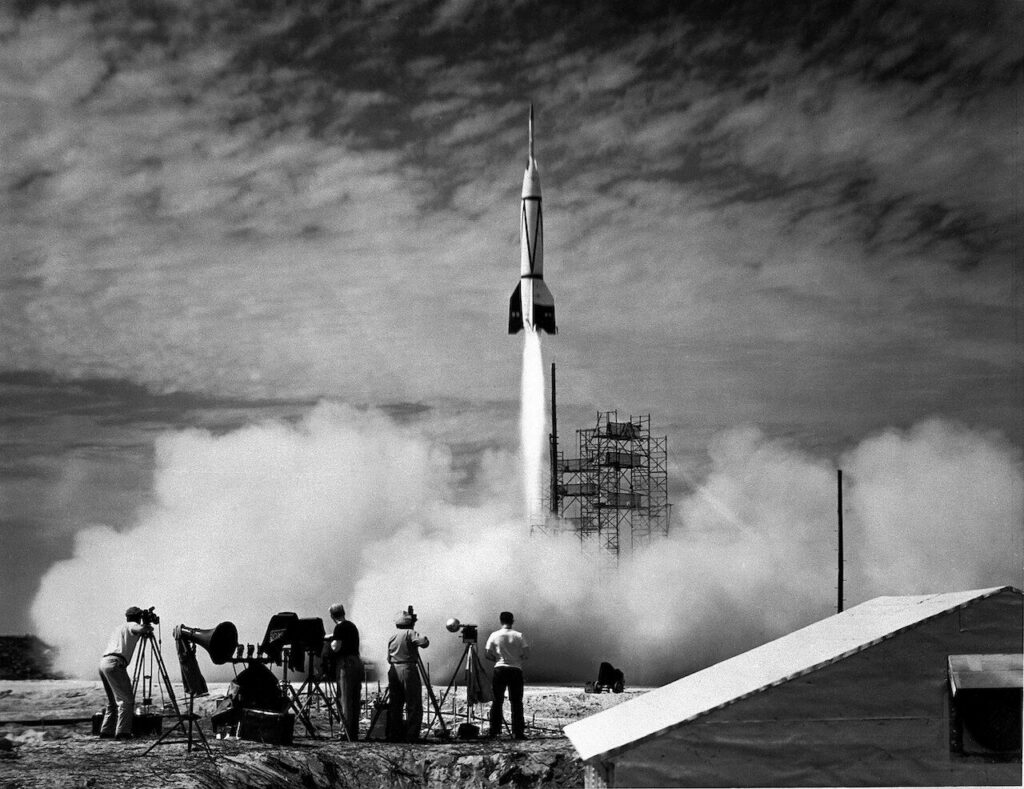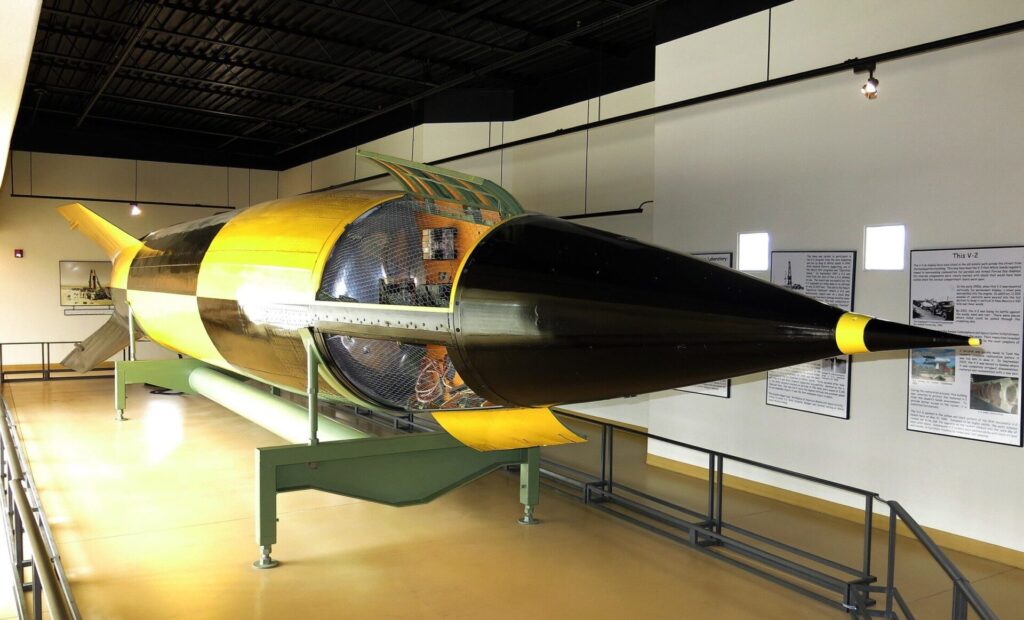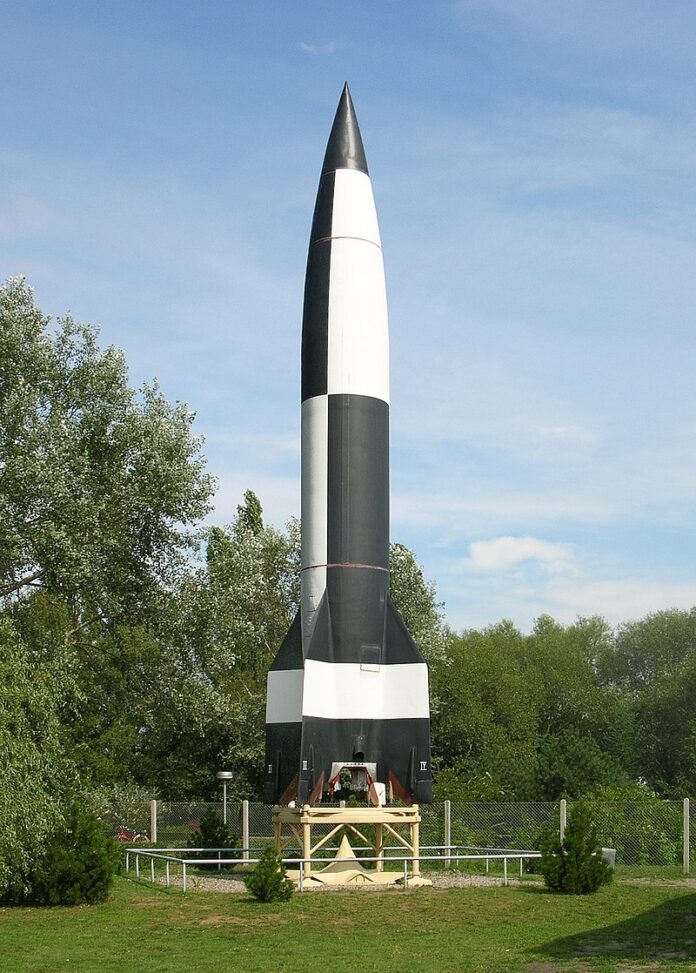Berlin, 1944: In the darkest days of World War II, the V-2 rockets, a product of German engineering genius, emerged as a weapon with the potential to change the course of the war. However, this technological breakthrough brought with it immense destruction and human suffering.

The Birth of the V-2:
The origins of the V-2 rocket date back to the 1930s. A group of German scientists and engineers, led by Wernher von Braun, were conducting intensive research on liquid-fueled rocket technology. This research was carried out at a secret research center in Peenemünde.
With the outbreak of war, the German military showed great interest in the V-2 project. The rocket’s long range and high speed offered the potential to launch devastating attacks behind enemy lines. As a result, the project was rapidly developed, and the first successful test flight took place in 1942.

Deadly Ascent:
By 1944, V-2 rockets were in mass production. The rockets were launched from ramps in the Netherlands and Belgium, targeting many cities, including London, the capital of England. V-2 attacks continued until the end of the war, causing the deaths of thousands of civilians.
The V-2s were equipped with highly advanced technology for their time. The rockets, approximately 14 meters long and weighing 13 tons, could reach speeds of 5,760 kilometers per hour. Their one-ton warhead caused massive destruction at the point of impact.

Post-War Legacy:
With the end of World War II, the V-2 rockets and their technology attracted great interest among the victors of the war. Wernher von Braun and his team were brought to the United States under a program called “Operation Paperclip.” Here, new rockets and missiles were developed based on V-2 technology.
V-2 rockets went down in history as a symbol of the brutality of war and the destructive power of technology. These rockets are also considered one of the first steps that initiated the space age.
Technical Specifications of V-2 Rockets:
- Length: 14 meters
- Weight: 13 tons
- Speed: 5,760 km/hour
- Range: 320 kilometers
- Warhead: 1 ton

Effects of V-2 Rockets:
- Death and injury of thousands of civilians
- Extensive material damage in England
- Potential to change the course of the war
- Technological breakthrough that initiated the space age
Conclusion:
German V-2 rockets went down in history as one of the most important technological developments of World War II. However, this technological breakthrough brought with it immense destruction and human suffering. The V-2s will be remembered as a symbol of the brutality of war and the destructive power of technology.

